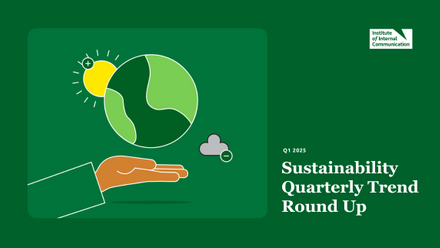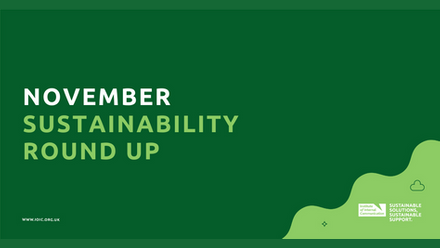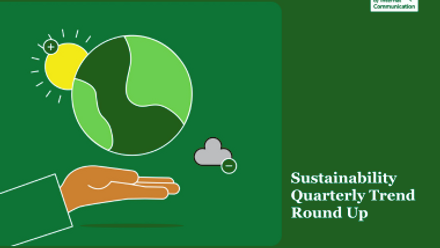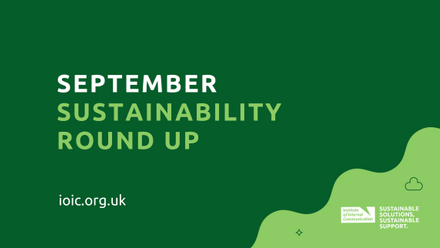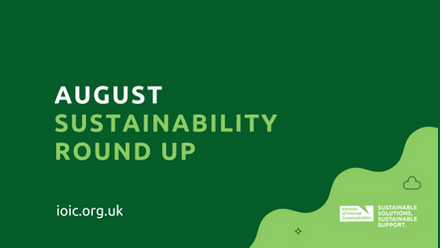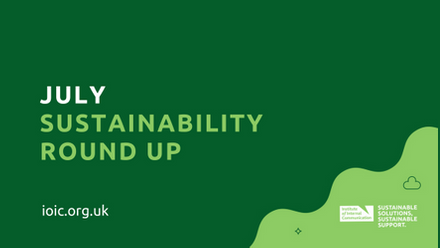Organisational sustainability
In the face of mounting environmental and social challenges, prioritising sustainability positions businesses as leaders in a future where such practices are increasingly essential for prosperity and growth.
So, as the public becomes increasingly aware of climate change and their own role when it comes to living more sustainably, it’s no surprise that more and more people are choosing to support companies that genuinely champion business practices that minimise environmental impact.
This means adopting business sustainability strategies is no longer optional for companies aspiring to thrive in the modern business landscape. Beyond the ethical considerations and the reputational benefits, these strategies offer many tangible benefits that directly contribute to long-term success.
Simply put, implementing sustainable initiatives has far-reaching strategic business advantages. And your own organisations will have their specific motivations for prioritising such strategies, of course.
However, in case you need any more food for thought, the Forbes Business Council recently asked a panel of expert members to share their individual reasons for focusing on sustainability – so here are 18 reasons why prioritising such initiatives can offer up substantial strategic advantages.
Community sustainability
Might certain local community initiatives to rewild punch way beyond their weight when it comes to helping to stabilise the global climate? That’s the thinking behind the reintroduction of a herd of 170 bison to the Țarcu region of Romania’s Carpathian Mountains – because they’re literally effecting change at the ‘grass roots’ level.
These avid grazers are stimulating plant growth while encouraging carbon storage in the soil. In fact, experts estimate their activity could sequester 54,000 tonnes of carbon – the CO2 equivalent of 123,000 average European petrol cars for one year.
That’s an impressive ten times more than would occur if the free-range ruminants weren’t there.
We’re all aware of the detrimental effect intensive, industrial-level animal farming has had on global climate change. But numerous studies reveal that nurturing certain wild species in their natural environments can profoundly influence carbon cycles for the better.
Climate scientists are now looking at other animals who show similar promise to these bison’s capacity to draw down and store carbon within their ecosystem.
Organisations introducing free-roaming herds of musk oxen into their headquarters’ grounds is unlikely to be happening anytime in the future. But this positive finding does sound like it has significant implications both locally and globally.
Economic sustainability
The economic damage wrought by climate change is six times worse than previously thought, according to a new working paper from the National Bureau of Economic Research in the U.S.
It estimates that global heating will come with an enormous economic cost, shrinking wealth at a rate consistent with the economic damage caused by fighting a war domestically and permanently.
Its researchers found that a 1°C (1.8°F) increase in global temperature will lead to a 12% decline in world GDP. This is much higher than previous estimates.
The world has already warmed by more than 1C since pre-industrial times and many climate scientists predict a 3°C (5.4°F) rise will occur by the end of this century, due to the ongoing burning of fossil fuels.
A 3°C temperature increase will cause “precipitous declines in output, capital and consumption that exceed 50% by 2100”, the study claims.
Very sobering stuff, of course. But it’s essential to keep abreast of projections like these as part of our own endeavours to keep on-message and remind colleagues of the importance of doing our bit as organisations – and as individuals.
Environmental sustainability
There’s been a fair bit of speculation about how the 21st Century will belong to Africa, but might it be innovations in green tech that helps bring that about? Dutch climate expert and the newly-installed Chancellor of Nairobi University, Patrick Verkooijen certainly thinks so.
However, for that to be a possibility, the global north will need to step up in terms of its support for and investment in the continent.
It’s hard to disagree with Verkooijen’s claim that sub-Saharan governments receiving comparatively paltry amounts of aid to assist with environmental adaptation is a scandal. These countries only emit 3% of global greenhouse gas emissions it and are disproportionately at the ‘business end’ of climate chaos, after all.
However, he sees glimmers of hope for the future in what he refers to as ‘Silicon Savannah’. This is Kenya’s burgeoning technology sector, a play on Silicon Valley and the grassland terrain that is a key feature of the country’s ecology – which he sees as an exciting new hub for start-ups and VC investment.
So, with the appropriate international cooperation from those with the deepest pockets, the potential to help tackle the climate emergency through green tech advances may soon increasingly emanate from the parts of the world less traditionally associated with innovation.
Personal sustainability
Ever wondered how many planets humanity would require if everyone exercised the same consumption behaviour as you? Individuals can now find out by measuring their own environmental impact on Earth thanks to the launch of the MyGlimpact app.
The app enables users to evaluate the true environmental footprint of their lifestyle – and suggests the action they can take to reduce it by consuming more responsibly.
While its CEO admits that countries, businesses and organisations are by far the key contributors to the deleterious effects of climate chaos, the app’s aim is to grow awareness among individual consumers – and give them the impetus to change their habits.
An individual’s overall footprint is assessed through questions about key resource consumption areas such as food, housing, transportation, electrical and digital appliances, clothing, and overall consumer habits.
Users then earn a score depicting how many additional Earth-like planets humanity would require if everyone consumed in the same way as them.
The app highlights how, when it comes to living more sustainably, things are not always as straightforward or obvious as they might first seem. But armed with the right information at our fingertips, we can be real agents of change – no matter how insignificant switching habits might seem – when it comes to making responsible choices, both inside and outside of our organisations.

